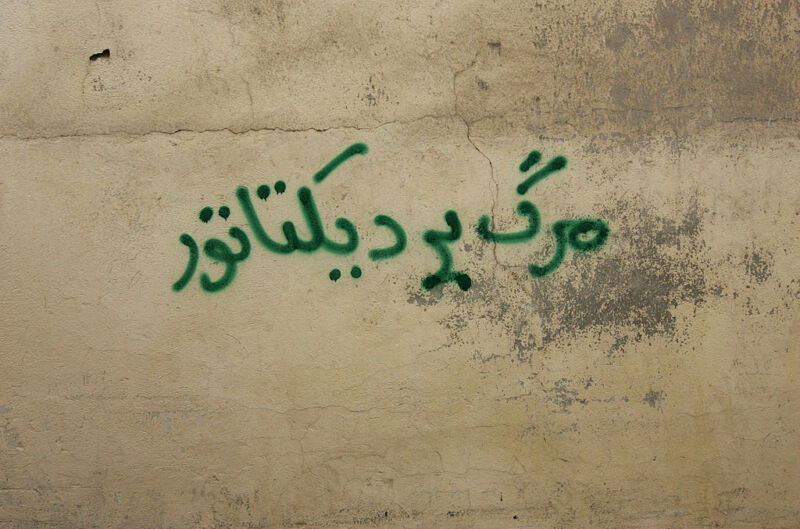
Enlarge / An anti-government graffiti that reads in Farsi “Death to the dictator” is sprayed at a wall north of Tehran on September 30, 2009. (credit: Getty Images)
Amid ever-increasing government Internet control, surveillance, and censorship in Iran, a new Android app aims to give Iranians a way to speak freely.
Nahoft, which means “hidden” in Farsi, is an encryption tool that turns up to 1,000 characters of Farsi text into a jumble of random words. You can send this mélange to a friend over any communication platform—Telegram, WhatsApp, Google Chat, etc.—and then they run it through Nahoft on their device to decipher what you’ve said.
Released last week on Google Play by United for Iran, a San Francisco–based human rights and civil liberties group, Nahoft is designed to address multiple aspects of Iran’s Internet crackdown. In addition to generating coded messages, the app can also encrypt communications and embed them imperceptibly in image files, a technique known as steganography. Recipients then use Nahoft to inspect the image file on their end and extract the hidden message.

